
The man who killed Deire Odalia Ramírez, from Santa Cruz, wanted to make the investigators on the case believe that she had simply left.
After killing her, Joel Alberto Córdoba Núñez went to live with Deire’s family and went to OIJ to file a report of her disappearance.
The reality was different: He killed her and hid her body. With the investigation, the prosecution was able to determine that he was her murderer, even though the way in which he killed her is unknown.
“We don’t know if he suffocated her, hit her or stabbed her, since there was no body or autopsy,” reads the sentence that gave him 35 years in prison in 2022. In it, the judges explained that some scratches that Córdoba had, and that he wanted to hide, showed that Deire Odalia struggled for her life.
She fought until her last breath, having full knowledge that her murderer was her own romantic partner, from whom she should have been able to expect protection and not death,” the judges concluded. “[He took] his machismo and his violence to the extreme.”
Deputy prosecutor of Santa Cruz, Aymee Caravaca, affirmed that it’s one of the few cases in which a conviction has been achieved in the country without having the body. “Every time that skeletal remains show up, we wonder if it’s her, to give the family an answer,” she said.
“Our goal is to bring a person to justice, but the family also needs peace and closure, and that’s something they haven’t been able to have,” she lamented.
That’s not the only femicide case in which the murderer has tried to hide the crime, according to an analysis by The Voice of Guanacaste of the 19 femicides that occurred between 2018 and 2023 in the province, based on those identified by the Interinstitutional Subcommission for the Prevention of Femicide and adding some others that have not been included.
Some of these men who committed femicides have been slow to receive their sentences due to the circumstances in which they killed the women.
That’s what authorities suspect also happened with the death of Raquel Arroyo Aguilar in 2020 in Liberia.
After three years of investigation, last September, Liberia’s Prosecutor’s Office requested that Raquel’s husband, Dr. Marco Antonio Carmona Jaén, be put in preventive prison as the main suspect for murdering her in 2020.
Initially, Carmona indicated that he had given his wife medication because she had intestinal problems, and it was believed that her death was a reaction to the medication that was initially only to alleviate a condition. But the investigation has now revealed sufficient elements to believe that he did it with the express intention of causing her death.
Through the investigation and different technical and scientific elements, the conclusion was reached (…) that apparently they were looking at a death by homicide,” OIJ indicated when they arrested him this year at the Enrique Baltodano Hospital, where he worked.
It’s a case that Liberia’s deputy prosecutor, Elvis López, describes as outside of the “normal pattern of femicide.”
“It’s highly technical due to the manner of death… He is not a common criminal, but rather these are highly premeditated acts where they have managed to elude proof and that represents a challenge for the authorities [in the investigation].”
Post-Femicide Suicides
Other families were unable to obtain judicial accountability for the deaths of their loved ones.
Two of the 19 murderers committed suicide after committing the femicides: Sergio Guevara Bermúdez, who asphyxiated Marisol Estrada Mejías in 2018 in Liberia, and Christian Rodríguez Delgado, who shot his wife, Seylin María Cabezas Castillo, in 2022 in Tilarán.
Marisol’s death, and Sergio’s suicide, occurred in the prison in Liberia during a visit.
What happened happened in prison and no one took responsibility,” said Marisol’s mother, Dulcelina Mejías. “She was there where there was supposed to be security, but she didn’t have it,” she said, grief-stricken.
Studies in other regions of the world, where this phenomenon has been analyzed, understand that post-femicide suicides are a way of showing regret or avoiding the negative consequences associated with the crime, such as social rejection or criminal punishment.
When There Is No Closure
Without taking into account the femicides from this year and the two from previous years that ended in suicides, the courts have handed down seven sentences, and five cases have not been resolved.
Even those that have received sentences have involved exhausting processes for the families: from sentences that don’t seem fair, since they are condemned as homicides, which can mean a sentence of up to 20 years less than what it would be for femicides; to processes with appeals that involve years of revictimization for families.
The femicide of Mariana Leiva, from Liberia, in 2018 is an example of that. Although her husband and murderer Ronaldi Sequeira was initially convicted that same year, because it was processed through flagrancy channels, he and his lawyers have appealed the sentences twice.
Flagrancy: It consists of a very rapid process where criminal cases are processed in which the person involved is caught at the moment of committing the act and/or immediately afterwards, or while being pursued, or when he has objects or exhibits traces that suggests that he just participated in a crime. This is done according to article 236 of the Code of Criminal Procedures.
“The case is in the third courtroom due to an appeal by Ronaldi’s defense. The third court confirmed the crime of femicide but has not made a decision on the crime of arson, which he was also accused of,” said Ricardo Quirós, the lawyer for Leiva’s family who handled the case first as a prosecutor and now as a private attorney, after retiring.
Other crimes have not managed to be sentenced as femicides, such as the case of Marianela Álvarez Alvear, which occurred in 2019 in Santa Cruz. Her murderer, whose last names are Ruiz Gutiérrez, killed her by slashing her with a machete and tried to burn her.
In 2021, he was sentenced to 15 years in prison for simple homicide. Despite an appeal from the prosecutor who handled the case, due to believing that he should be judged with a longer sentence, the judges did not accept the claim.
“In his statement, [Ruiz Gutiérrez] has indicated that this that time he has been in prison has allowed him to reflect a lot on what happened and that he is repentant, and it’s a repentance that the Court estimates has been forming since the genesis of the acts…. He himself agrees to surrender after a negotiation and that reflects a repentance in the psyche of the accused, after he was more emotionally stable,” emphasized the judges who rejected the appeal.
That also happened with Justina Galo Urtecho, 69 years old, whose murder was charged as a homicide, even though she had signs of sexual violence.
I think that at some point, a division was made; he was accused of homicide and rape,” said López, but he acknowledges that he isn’t so clear on the case. “From my point of view, it could have been treated as a femicide,” he admitted.
Other crimes could even take years to reach a decision. That’s what appears to be the case for the death of Katherine Villalobos Williams, who died in her home in 2020, and the main suspect in her death is her ex-partner, Walter Jesús Navarro Mora.
His trial isn’t scheduled until 2025. “This is because of the court’s schedule,” indicated Caravaca in her office, where she spoke with The Voice. She also said there that the suspect is not in custody in preventive prison because he doesn’t pose “a procedural danger,” in other words, signs of obstruction, escape, repetition of the crime or danger to the victim or witnesses.
“If any of these requirements aren’t met, he could be released or have alternative measures to preventive prison, even if they are crimes against life.”
____________________________________________
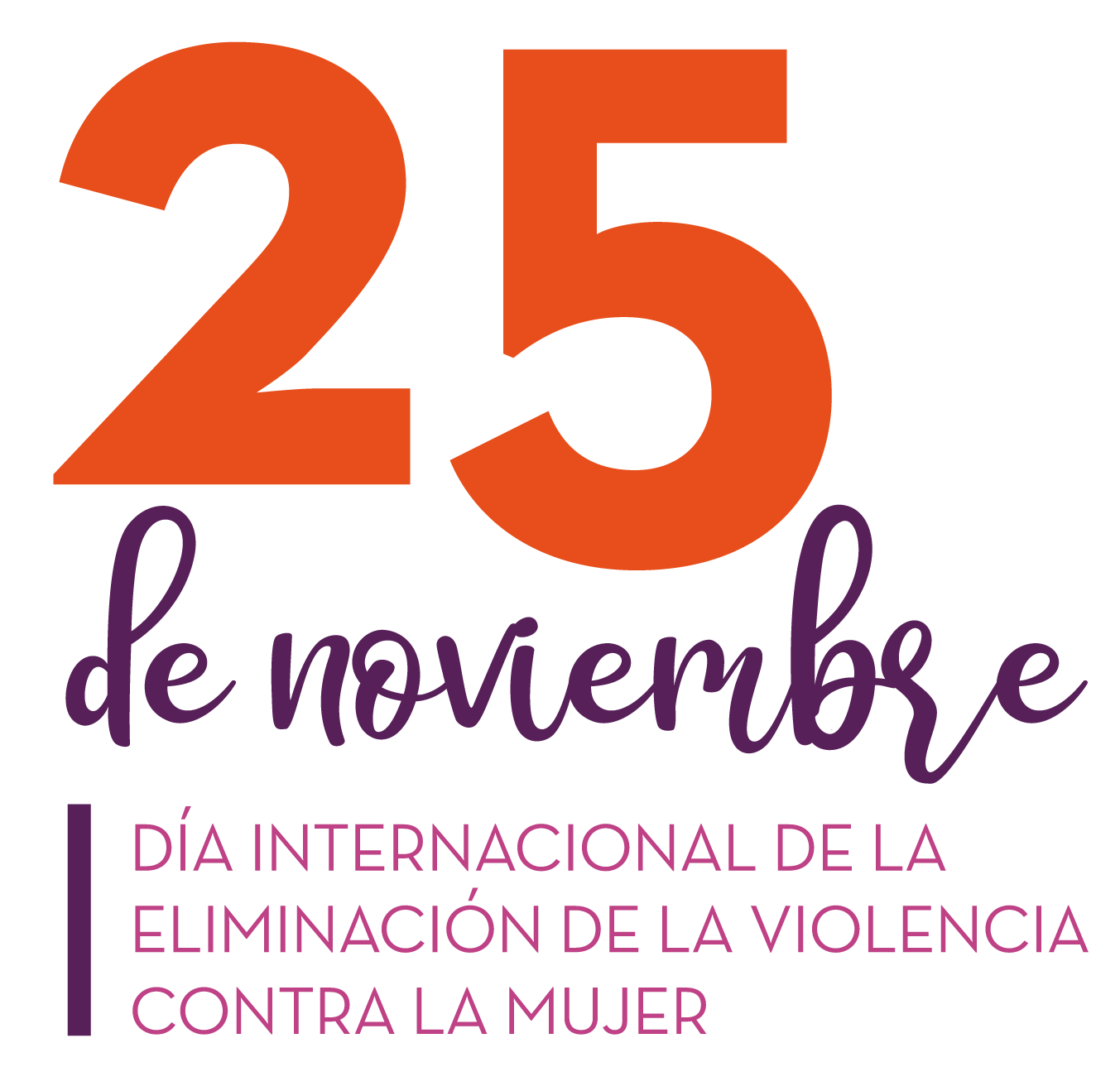
Our 2023 25N special edition is possible thanks to the Canada Fund for Local Initiatives, administered by the Canadian Embassy, which finances small-scale, high-impact projects aimed at empowering vulnerable communities and populations, and promoting human rights for everyone. For more than 50 years, in 120 countries, the Canada Fund has contributed to promoting democracy, supporting the protection of human rights, ensuring security and stability, creating opportunities and equality for children, women and youth, and stimulating sustainable economic growth, including actions in favor of the environment.



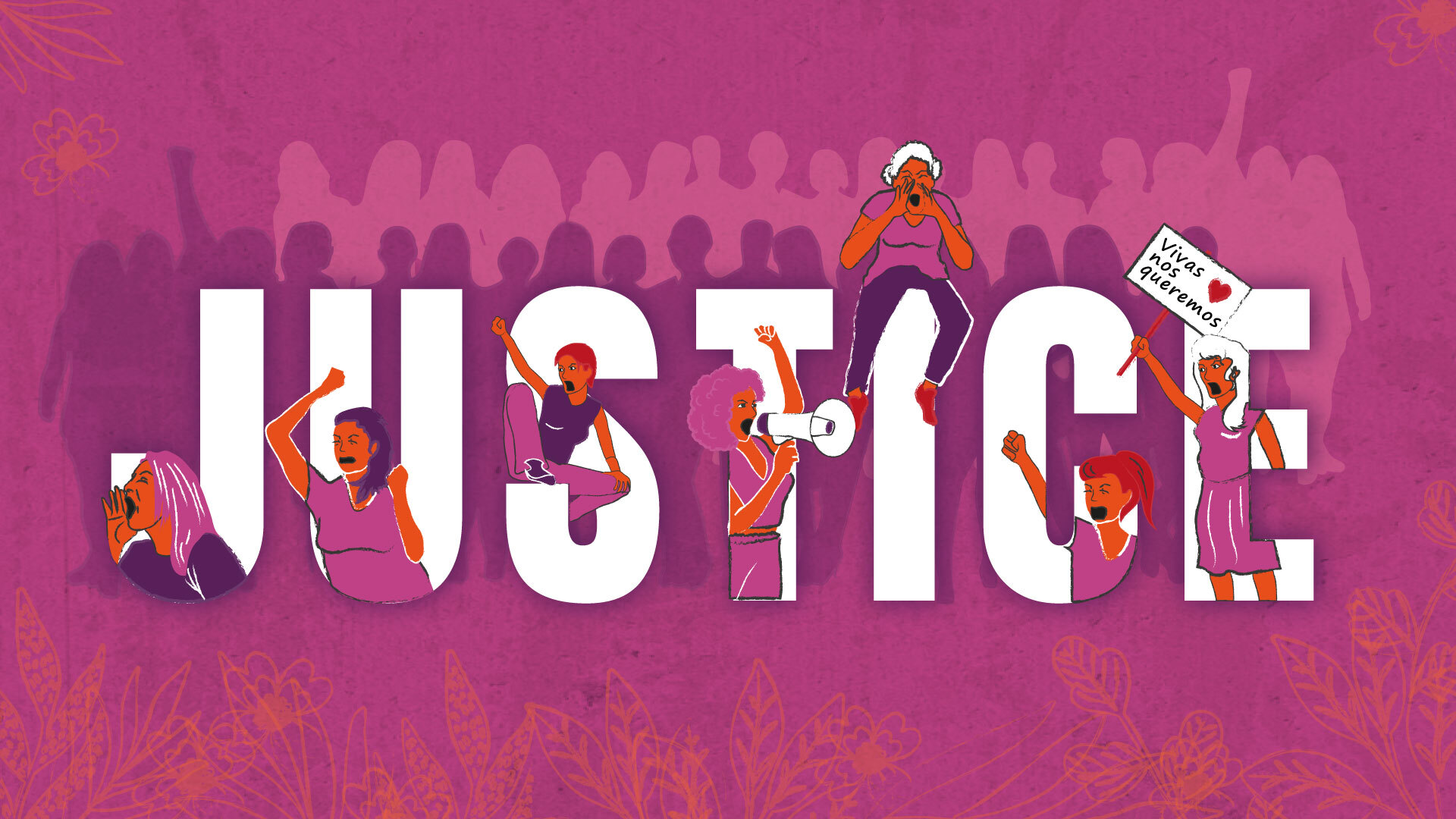
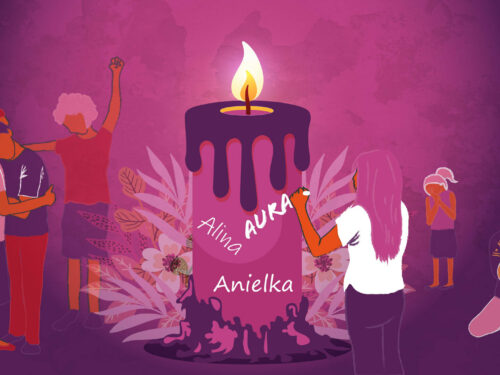
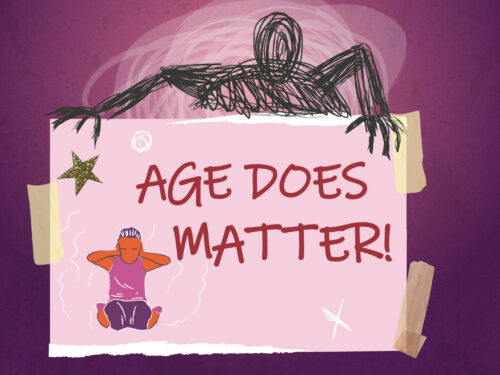
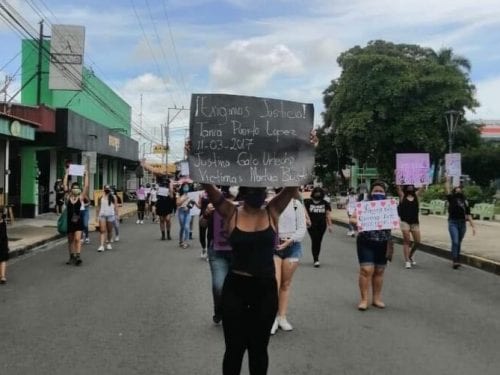

Comments